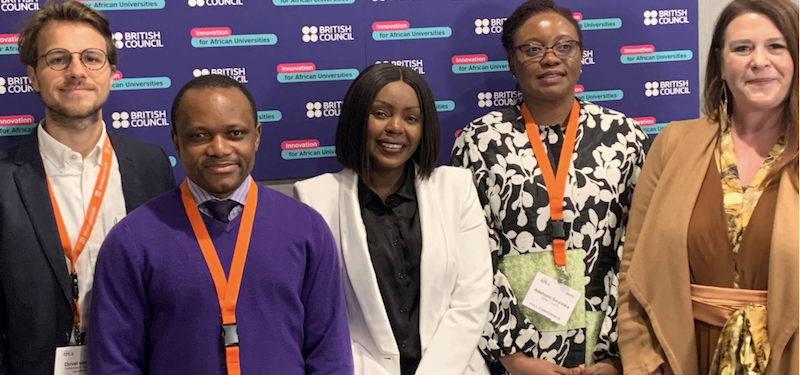[ad_1]
Africa in the spotlight at AIEA conference
Speakers at AIEA’s conference last month underscored that Africa will soon ‘matter more’ to the Global North, as the continent was placed in the spotlight.

During the next half century, Africa is predicted to have the highest demand for higher education and the largest labour force, with Africans representing 40% of the global work force, delegates at the event in Washington, DC, heard.
At the opening plenary, Paul Tiyambe Zeleza, associate provost at Case Western Reserve University, highlighted the “remarkable growth” of universities in Africa over last two decades, but added, “the growth in enrollment is outstripping growth in faculty”.
‘Funmi Olonisakin, vice-president of international engagement and service at King’s College London proffered that African migrants are among the most educated immigrants in their country of residence and that graduate studies must have a focus on “feeding the faculty pipeline”.
Olonisakin asserted HEIs need to re-examine motivations for internationalisation. “We need to adapt and engage a post-Covid reality with a changing population of international students,” she said.
“Trends of the future have emerged. And we need to strategically mobilise,” she avowed, stating that taking such a “problem-solving approach” means responding to both individual and societal needs.
“It’s social about responsibility and it requires a longitudinal approach. It’s a journey; it’s an experiment; but we cannot do it in isolation. It requires partnership.”
Olonisakin offered a series of recommendations, including developing easier systems of credit transfers and transcript evaluations, moving from branch campuses to co-developed programs, and leveraging resources to meet the scale of the challenge.
“We need to rethink the structure of TNE partnerships”
“We need to rethink the structure of TNE partnerships, so they are not just suiting the partners in the Global North.”
Speaking with The PIE News after the keynote, Olonisakin emphasised key takeaways to foster enhanced collaboration between the Global North and South.
“We have the same needs. We have the same challenges locally and globally. We have some of the best students in the world who may not be able to afford higher education,” she said.
She recommended to tackle this problem systematically, leaders must find local and global likeminded partners who are keen to collaborate. “We need to triangulate partnerships in a way that works. The challenges may be the same but it’s the point of intervention that might be different. So how we build partnerships is important,” she noted.
The British Council also held a panel at the conference that showcased its Innovation for African Universities program and discussed the role of internationalisation in strengthening university entrepreneurship ecosystems.
The regional director for higher education programs in Sub-Saharan Africa for the British Council, Adetomi Soyinka, spoke about the “side-hustle culture” that exploded during the pandemic when many schools were closed and layoffs abounded.
“Many young graduates ended up unemployed or employed and underpaid, an interesting development that became too fundamental to ignore especially during the Covid-19 pandemic that closed schools for long periods,” Soyinka said. IAU was developed to provide a platform for students to hone their entrepreneurial skills.
Duval van Zijl, climate director of the LaunchLab at Stellenbosch University, maintained that although Africa only contributes 3% to carbon emissions globally, “its population growth projections make it implicit for the continent to begin now, the process of putting in place low carbon products to ensure a secure future”.
From climate change solutions, to using drones to plant crops, to solar based cookstoves built to reduce greenhouse gas emissions, the panelists shared numerous innovative start-ups developed by students through the IAU program.
To date, the IAU supports 35 projects in over 80 HEIs with nearly 400 partners and more than 7,000 students.
The IAU is one example of a high-impact practice that is bolstering Africa’s place in the HE sector. And leaders have called for an increase in similar partnerships and programs that strengthen Africa’s geopolitical position.
“There has to be massive investment in capital and capacity to build up Africa in the global economy,” Zeleza concluded.
[ad_2]
Source link
Meet Our Successful Graduates: Learn how our courses have propelled graduates into rewarding
careers. Explore their success stories here!
Discover More About Your Future: Interested in advancing your teaching career? Explore our
IPGCE, MA, and QTS courses today!

Explore Our Courses: Ready to take the next
step in your education journey? View our
comprehensive course offerings now!

